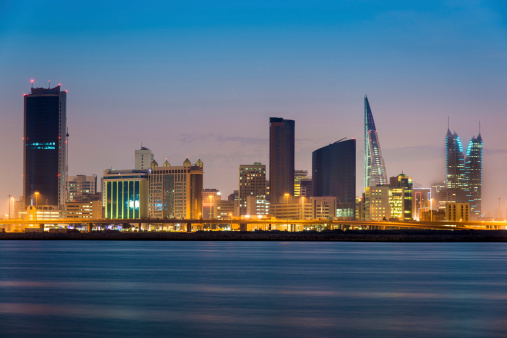Bahrain’s Ibdar Bank Eyes Larger Deals After Three-Way Merger
Ibdar was launched as a brand on Monday following the merger of Capivest, Elaf Bank and Capital Management House.

Bahrain’s Ibdar Bank hopes to leverage the combined expertise of its predecessor banks and a larger balance sheet to win business which its three legacy banks struggled to individually, its chief investment officer told Reuters in an interview.
Ibdar was launched as a brand on Monday following the merger of Capivest, Elaf Bank and Capital Management House, after more than a year of negotiations between the Bahraini lenders and authorities.
Bahrain’s banking industry is streamlining, aided by a central bank policy encouraging mergers and acquisitions, after it struggled in the aftermath of the global financial crisis and political unrest which deterred some foreign investment.
“2013 was a year we focused on integration, where we laid the foundations, 2014 is hopefully a fresh start for us,” said chief investment officer Mohamed Aljasim.
The Islamic lender now has $300 million of paid up capital, $329 million in equity and assets of $360 million, which it hopes can help it win deals in its focus areas of capital markets, private equity and real estate.
“There were a lot of opportunities that each of the legacy banks could not do individually, as it was too big or they couldn’t close the transactions. We now have a bigger balance sheet, it opens the door to greater opportunities for us.”
Ibdar is not leveraged and will retain Elaf Bank’s licence in Malaysia to support a geographical scope that includes the Middle East, North Africa and Turkey, Aljasim said.
In the past, the three lenders were involved in financing, advisory work and portfolio management in the aviation, shipping, infrastructure and real estate sectors, which Ibdar aims to maintain while disposing of non-core assets.
Ibdar would launch new products along these same business lines, said Aljasim, without elaborating on the timing or size of future transactions.
“The business lines will continue, not one will out-shine the other.”
The merger is a rare example of a successful consolidation of Gulf Arab banks, helping the tiny kingdom’s standing as a regional banking sector against growing competition from the likes of Dubai, Abu Dhabi and Doha.
Although the commercial rationale for consolidation is largely accepted, Gulf bank mergers are uncommon because main shareholders, often powerful local families, are reluctant to cede control and can demand exaggerated valuations.
“In terms of the process, which started in June 2011, it was shareholder-driven which made it easier to execute. The framework avoided a lot of the issues of valuation and other issues that can come in-between,” Aljasim said.
The merger comes at a time when several other Bahraini banks are considering mergers of their own.
Islamic lender Al Salam Bank said in September it had agreed to merge with fellow Bahraini lender BMI Bank, an affiliate of Oman’s Bank Muscat, through a share swap.
Khaleeji Commercial Bank, 47 per cent owned by Gulf Finance House, said in June it was evaluating a potential merger with local lender Bank Al Khair.
In March, National Bank of Bahrain and a local pension fund bought a 51.6 per cent stake in Bahrain Islamic Bank from Kuwait’s Investment Dar in a deal worth around $92.6 million.
